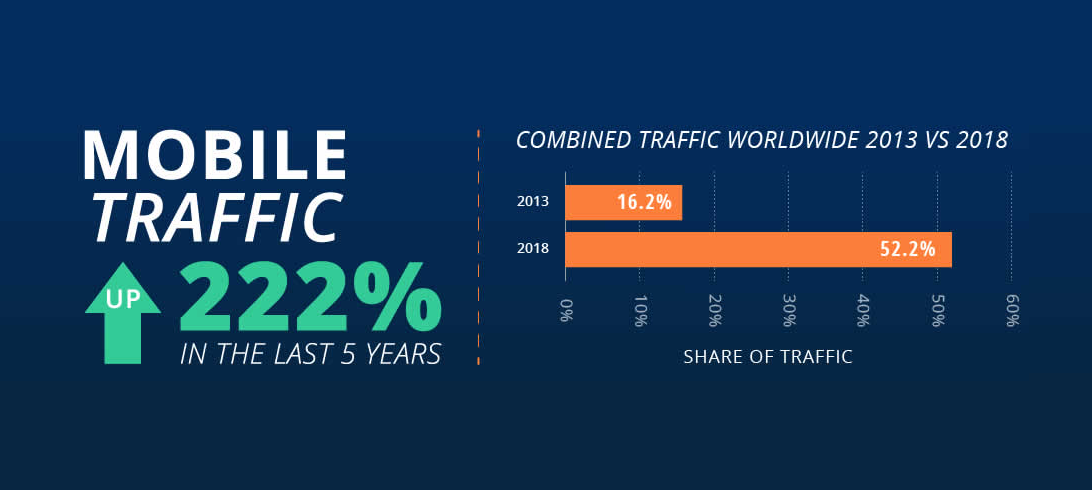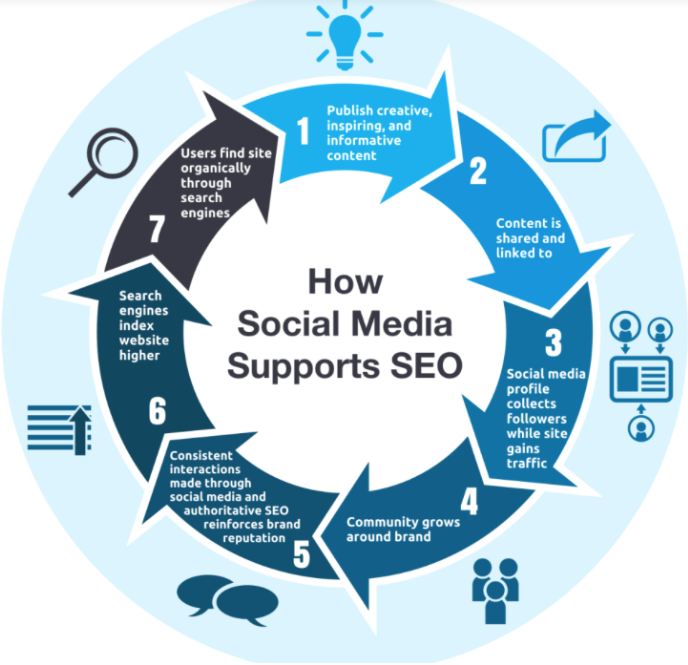Since its release in 2003, WordPress has never stopped growing.
In fact, it now powers
34% of the web.
WordPress 5.3 (released on November 12, 2019) has already had 8,088, 611 downloads!
So what are the reasons behind WordPress’s popularity?
There are many. But to you as a marketer, there’s one that stands out:
WordPress is the best CMS for SEO.
Here are 10 reasons why.
1. WordPress Focuses on User Experience
WordPress’s themes and plugins work together to make websites professional, user-friendly, and attractive.
The result?
Visitors enjoy the experience they get on a WordPress site.
They stay longer,
decreasing your overall site bounce rate.
If
you’re looking to improve your site’s SEO ranking, this is excellent
news for you. Google wants to reward websites that provide a great user
experience.
2. WordPress Allows You to Create Attractive Permalinks
On WordPress, it’s super easy to edit your website’s permalink.
Instead of having a URL full of ugly-looking characters, you get something like this:

The beauty of being able to edit your article’s permalink is you can plug your keyword into the URL.
This means your permalink doesn’t only look pretty and informative, it can help with your search ranking as well.
3. WordPress Makes Metadata Easy to Manage
SEO titles and metadata improves how search engines interpret the relevance of your site.
Metadata tells search engine crawlers helps understand what your webpages are all about.
When you add relevant keywords to your metadata, your site becomes more likely to rank for those keywords.
So how does WordPress help you with metadata?
When
you use WordPress, you can get a plugin such as Yoast SEO. This plugin
allows you to add metadata to all your posts in minutes.
4. Optimizing Images for SEO Is Simple on WordPress
Images
are essential to your blog posts. One or two of them, used in a timely
way, breaks up your blog into interesting, readable sections.
But images don’t only lead readers into the heart of your text.
They’re also powerful tools for SEO, especially when you use WordPress.
Here are three ways WordPress can optimize your images for better SEO ranking:
- WordPress
allows you to “create alternative text” for each image you use. This
means you can plug in your keywords as image descriptions that’ll be
noticed by search engine crawlers.
- With WordPress, you can use a plugin that automatically creates alt text for your images.
- You can resize your images so they don’t slow your page’s load speed down.
5. WordPress’s Sites Don’t Frustrate Users with Slow Load Time
Page speed
is a Google ranking factor in mobile search. So if your site is slow,
it’ll not only frustrate users but push you lower on Google’s SERPs.
The good news is WordPress has amazing plugins that help with site speed.
For
instance, there’s ShortPixel Image Optimizer. This plugin compresses
your PDF documents and past images to speed up your site’s load time.
Another
amazing plugin for site speed optimization is WPOptimize. This plugin
caches your site, clears your database, and compresses your images for
faster loading.
6. WordPress Is Optimized for Mobile Users
Mobile usage has grown rapidly in the past few years. Just take a look at this
chart from BroadbandSearch.

As you can see, mobile traffic went up 222% in five years!
If you’re a marketer trying to gain traction online, this means your website
must be optimized for mobile usage.
The
great news is if you’re already using WordPress to power your site, you
don’t need to do anything extra to make your website accessible on
mobile devices.
Why? Most WordPress themes are already optimized for mobile users.
7. WordPress Helps You Integrate Your Campaign with Social Media
Social media is gigantic today, and it’s one of the best platforms for marketing your brand.
What’s more, success in your social media campaign will indirectly improve your SEO ranking.
Suffering from fewer conversions for the same ad spend on your Google Ads?
Your
ads might be getting click fraud. Check if you need to protect your ads
from competitors & bots. Simple setup. Start your free checkup
today.
ADVERTISEMENT
Take a look at this cycle from LYFE Marketing to see how it works.

What this means for you as a marketer is you should use social media to go hand-in-hand with your online marketing campaign.
And WordPress is there to help you do that.
On WordPress, you can create customized social media buttons for your blog so it’s easier for readers to share your content.
You can add a social media feed to your site.
You can even automate your social media campaigns!
8. WordPress Has Awesome Plugins Made Specifically for SEO
When you use WordPress, optimizing for higher ranking becomes simple. All you need is to install the right
plugins.
Here are three of the best SEO plugins for WordPress.
Yoast SEO
Yoast
SEO has had millions of downloads worldwide because it makes website
optimization simple for even the least tech-savvy person on the planet.
So, how can Yoast SEO help you?
- It helps you optimize the content you write with your focus keyword.
- It assists you in creating content that’s readable for both humans and search engine spiders.
- It provides SEO title and meta description templating.
Yoast SEO also offers Premium users full support whenever needed.
Google XML Site Maps
With
this plugin, creating complex XML site maps becomes simple. These maps
make your site’s structure easy for search engine crawlers to
understand.
Also, each time you publish a post, this plugin “notifies” search engines of your new content.
Google Analytics by Monster Insights
WordPress’s Google Analytics plugin is described as both “easy” and “powerful.”
Here are three reasons this plugin stands out:
- You don’t need to leave your WordPress dashboard to see your Google Analytics reports.
- You can study which pages stand out on your site with detailed stats.
- You can see how many clicks your banner ads, affiliate links, and outbound links get.
The beautiful thing about SEO plugins for WordPress? You never have to touch even a line of code.
9. WordPress Is Easy to Integrate with Other Software Tools
You already know how easy it is to integrate WordPress with Google Analytics and Yoast.
But they’re not the only software tools you can use seamlessly with WordPress.
Here are some others:
- ConvertKit (for email campaigns, landing pages, and forms).
- Sucuri (one of the best software for security).
- G Suite (for your documents, spreadsheets, and emails).
With these software tools running smoothly with your site, you can boost engagement which will further improve your SEO rank.
10. WordPress Has SEO-Friendly Themes
Keywords and metadata aren’t the only components search engine spiders examine for relevance.
Another hugely important thing they look for is good webpage design.
When you use WordPress, you never have to worry about optimizing your site design for SEO yourself.
Simply choose an SEO-friendly theme, and you’re on your way to attracting those spiders to your site!
VISIT FOR MORE : https://www.searchenginejournal.com/wordpress-best-cms-seo/338275/?ver=338275X2#close


















